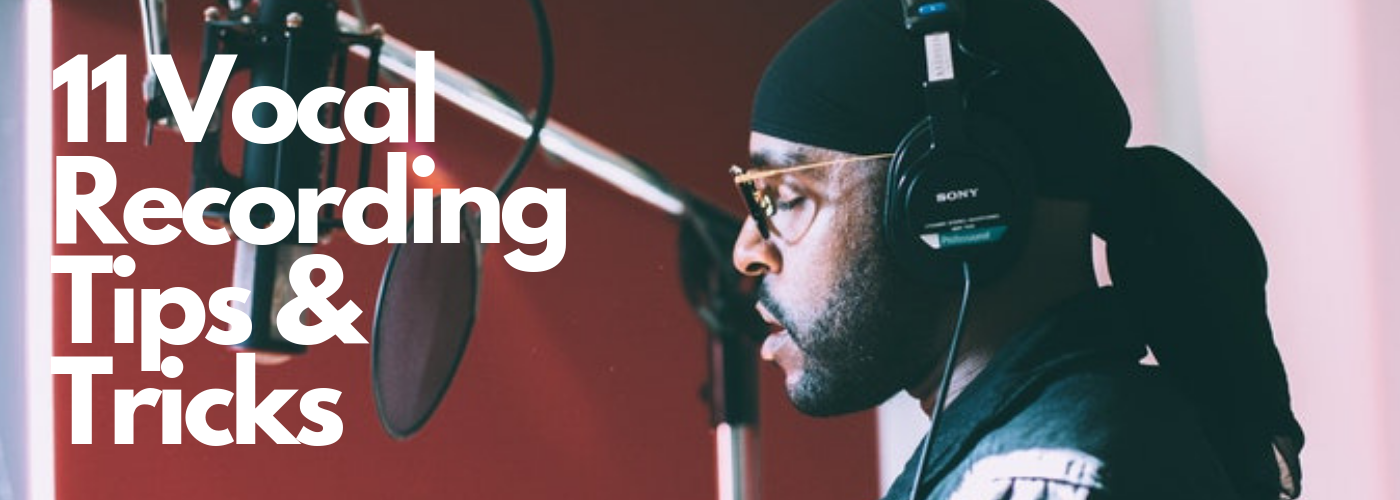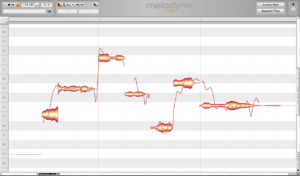One of the most overlooked areas in home recording is the vocals. Many beginner engineers simply set up a microphone and expect to get a great sound with no further work.
However, learning how to professionally record vocals is much more intricate than this. It takes one years to discover and perfect all the little tricks and tips that go into properly recording vocals. Don’t have years to figure this all out? Don’t worry!
If you’re getting ready to professionally cut your final vocal tracks for a song we produced at Sundown Sessions Studio or in your own studio but don’t know how to start, we’ve got you covered.
Here is a top ten list of vocal recording tips & tricks from our senior producer, Chris Shreenan-Dyck.
1. Buy The Right Microphone
Every voice is different and when recording it’s important to pick a microphone that suits you best. Price is not always a factor; in fact some of the best vocal performances have been recorded with microphones costing a few hundred dollars
A big tip is to always try a vocal microphone before you buy, let alone begin recording. Refer to our article Best home recording microphones on our blog page for some ideas on how to go about that for vocals and other instruments.
2. Record In A Good Space
If you don’t happen to have a perfectly tuned room to record vocals in, check out the microphone baffle from sE Electronics which will really improve how your tracks sound.
If you’d rather save some money, simply deaden the room or area around the microphone with pillows and layers of thick blankets – don’t forget the ceiling too.
It’s always better to make it too dead than not enough in this case. We can always add reverb and delay later. This is much more ideal than being stuck with a less than ideal room sound we can’t get rid of.
3. Train And Warm Up Your Vocal
Getting things good at the source is one of my biggest tips when learning how to record vocals professionally. You don’t have to be the greatest singer in the world to have chart topping success either. However, you want to be as good as you can be.
It’s easier now than ever to train your voice without a teacher with just online courses and apps. One of our favorites is the app Voice Tutor. Just load it onto your smartphone and practice wherever you are whenever you have some alone time.
You’ll notice an immediate improvement in your performance. It also includes a warm up section, full of important tips on preserving your voice between vocal tracking sessions as well as how to hit those high notes when recording.
4. Use The Right Headphones
Another useful tip is to use headphones that reproduce your vocals clearly in a mix so you can really hear what you’re recording. When you listen to your performance back on the speakers you don’t want to be surprised by a vocal was comfortably buried in the mix with headphones.
See this great article about using headphones in the studio for more tips to use when recording vocals and everything else.
5. Play Your Mic
Learning how to use your microphone as a tonal instrument, to get different effects for different song styles is key too professionally recording vocals.
You’ll notice as you lean in closer to the microphone that you get a darker tone with more bottom end on it. Contrary to this, it thins out as you move further away. This is called the proximity effect and is something professionals take advantage of on their vocal tracks.
Find the sweet spot where your voice sounds best to you in the headphones for a particular song.
Happy heavenly birthday to the iconic Debbie Reynolds! Here are Debbie and Frank Sinatra in 1955, recording “The Tender Trap.” pic.twitter.com/THTyiAfWDg
— Frank Sinatra (@franksinatra) April 1, 2019
FYI – many vintage mics were designed to record sound sources from a distance and will sometimes sound dark when sung into them from only a few inches away. Try singing from up to a couple of feet away from it. You’ll be surprised how it opens the vocals up when recording.
6. Many Singers Hate Their Voice
For some reason, many singers don’t like the sound of their own voice just like most of us don’t like the sound of our speaking voice recorded.
You can have as many vocal recording tips as you want, but this is just something many artists have to get used to. However, when recording you’ll need to learn how to tell the difference between this normal phenomenon and a vocal performance that needs improving.
Technical things like pitch, timing, and phrasing are usually pretty obvious but we also need to learn when the delivery or emotion could be better. Once you have a vocal take you like, try to beat it.
Experiment with different deliveries and try some things that may feel over the top. These are sometimes exactly what a section of the song needs.
7. Sing To Someone
When you are delivering your lyrics, it helps to have someone or something in mind who you are singing to or about. This goes a long way and makes you sound like you aren’t just going through the motions.
One of greatest qualities a recording artist can learn is how to have vocal is authenticity. You want the listener to feel what you are feeling.
8. Comp Your Tracks
A lot of artists like to punch in on their vocal takes to fix parts they want to change. There is nothing wrong with doing it this way, but there is a method that often produces more natural results. It is called vocal comping and is a useful tip to keep in mind when recording.
Sing your song 3 to 8 times in a row, recording each track under the last one. Make sure you mute the previous tracks so you are only hearing the one you are recording.
Comping a vocal surely I can pull one together out of 8 takes!!????????????#recordingstudio #daw #music pic.twitter.com/m11JwVgJhq
— Fergal Nash (@Fergonash) December 20, 2018
Once you are finished recording, mute all the vocal tracks except for the first one and listen to the first phrase. Now mute that one and listen the same phrase on the second track and so on down.
Pick the best sounding phrase and move on through the song this way until you have the best composite of the vocal tracks possible. This method can sometimes take you longer but it’s the secret to how professional vocal recordings sound so perfect.
9. Tune Your Tracks
There’s quite a bit of stigma around tuning vocals but it’s the secret to how professionals get their recordings sounding so perfect. Often times a vocal track will be tuned so transparently that the listener has no idea.
Even if the singer does a flawless job, pulling everything tighter to the key of the song can have an effect that is felt rather than heard. However, make sure you don’t go overboard with the tuning so it sounds like an unnatural effect.
10. Sleep On It
With the luxury of being able to make great records at home, after you have a vocal take you like, see if you still like it the next day.
If you’re in a studio with a limited time frame, take a break and do something that has nothing to do with music for fifteen minutes or half an hour after your take. It is amazing how a little time away gives you a new perspective on the recording.
11. Let Small Mistakes Go
Learning how to let things go is a hard tip to grasp when first recording vocals. Later on when you listen back to your final mix, you might hear something you wish was done better.
Trust yourself enough that you did what you thought sounded right at the time and know you are always improving. Your audience won’t notice it unless you point it out, and in fact they might like it as something that sets you apart or sounds more honest.
Conclusion
By now you’ve probably realized that when it comes to learning how to record vocals professionally, it takes a lot more than just setting up a microphone. To get the best results when recording vocals consider the following:
- Buy The Right Microphone
- Record In A Good Space
- Train And Warm Up Your Vocal
- Use The Right Headphones
- Play Your Mic
- Many Singers Hate Their Voice
- Sing To Someone
- Comp Your Tracks
- Tune Your Tracks
- Sleep On It
- Let Small Mistakes Go
Follow these vocal recording tips and you will be singing like the pros in no time.
Finally, if you’ve recorded a bunch of vocal tracks and want someone else to take care of the mixing, comping and auto-tune, our Sundown Sessions online recording studio has plenty of industry professionals ready to help you out! Head over to our pricing page for more information.
If you enjoyed this article and want to learn more head over to the Sundown Sessions blog for more home recording tips on vocals, mixing, and everything else!







